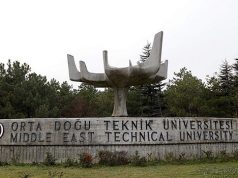
European Multi Lake Survey (EMLS) conducted by Prof. Meryem Beklioğlu at METU Department of Biology and an international team of researchers from the Limnology Laboratory was published in Scientific Data, Nature. A total of 369 lakes were sampled in 27 countries in the study based on the ability of lake experts from different disciplines to formulate protocols on how to perform standardized sampling, sample processing and analysis among the lakes and to teach these protocols to the participants in their own countries. This study, which was carried out without a project and budget, makes an important contribution for being “open science” as it provides open sources and for being “community science”* as it is conducted by a large number of participating scientists.
The sampling collected by a large number of science people being in the same time zone and using the same protocol across Europe using the methodology described 25 participants from various regions of Turkey was carried out by the financial means of each participant. In the study, an extensive data and standard set was produced for the first time in Europe and Turkey. Based on these data, a large number of important scientific findings will be revealed and important scientific papers will be produced, the authors of which are the participants of the sampling.
About EMLS
Eutrophication as a result of global warming and increased nutrient in aquatic ecosystems causes cyanobacterial excess increases in aquatic ecosystems worldwide. Cyanobacteria which increase excessively in inland waters, especially in lakes, may produce toxins which constitute a significant risk for animal and human health and thus cause great economic losses by threatening the supply of irrigation water in safe drinking and agriculture. The mechanisms that determine the excessive increase of cyanobacteria are very complex as they involve direct and indirect interactions. In order to understand the mechanism of occurrence of such important global phenomena, the cyanobacteria density in lakes in different climates should be investigated on a very wide geographical scale. The European Multiple Lakes Survey (EMLS) is an attempt to identify the lakes in Europe and to determine the mechanisms that trigger potentially toxic cyanobacterial overgrowth.
Initial EMLS results showed that the distribution of cyanobacterial toxins and the toxic potential in the lakes would directly and indirectly depend on the effect of temperature. We have shown that the cyanobacterial increase is synergistically interacting with the lake water temperature, if the amount of nutrients is not reduced, among other important findings. EMLS is the best example of the research projects that can be carried out by grassroots movement based on high standards of cooperation, which would prompt scientists with the existing scientific infrastructure even without funded projects.
* Collaboratively-led scientific investigation, exploration and engagement in the entirety of the scientific process.







